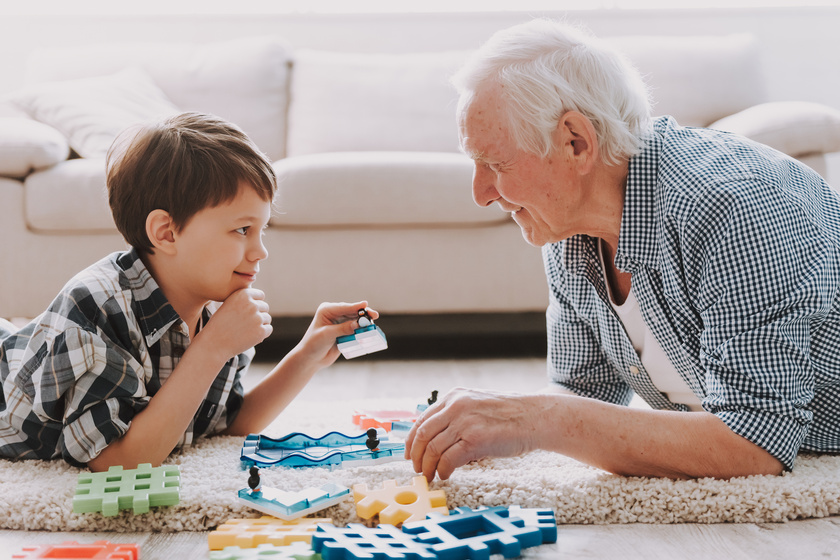Dementia has become a common condition in people over the age of 65. Children are usually accepting of this condition, but may not understand why their grandparents behave in such a way. Below are some tips which can help explain dementia to grandkids.
How Children Generally Respond to Dementia
Because the symptoms of dementia tend to be mild at first, children might not recognize the change initially, unless they are unusually perceptive. They will tend to view its progression as being natural, rather than a condition which progressively worsens. As such, they will be able to communicate better with their grandparents and will accept the changes easier than their parents.
Be Honest With Children
There is a natural tendency for parents to want to shield their children from the unpleasant realities of the world, and this includes the subjects of aging and disease. However, the best approach is to be honest and forthcoming because after all, children will eventually become adults, and the sooner they understand how the world works, the better. So you can simply tell them that their grandparent is advancing in age and as a consequence their brain has begun slowing down, which causes them behave in certain ways which might not always be pleasant.
Tell Them about the Symptoms
Explaining the basic symptoms of dementia to children is one of the simplest ways to get them to understand. For instance, you could point out that when their grandparent snaps at them, or doesn’t want to play, it is not because they are upset with them or don’t care, but is the result of being frustrated because they can no longer engage in the tasks they used to do.
Let the child know that dementia affects concentration, making the process more difficult. This means that even basic activities like reading or counting is more difficult. You might also point out that dementia causes confusion and forgetfulness.
Let Them Know that Dementia is Not Contagious
One of the first questions that children might ask regarding dementia is whether or not it’s contagious. You’ll want to respond by saying that the disease is not contagious, and is something that some individuals develop as the result of aging. This will calm the child and alleviate any fears they might having regarding getting the disease themselves, at least while young.
What to Say When They Ask if Their Grandparents Will Die
This question assumes your child already understands the concept of death. If so, you’ll want to point out that everyone is mortal and will eventually die, including their grandparents, and all we can do is look after them the best way possible.
Most children are too young to understand the specifics of dementia, and in fact the scientific community has yet to find a cure. So you’ll want to keep things simple and show the children ways in which they can help so that things are easier for their grandparents. Keeping an open mind and communicating clearly is the key to success.







